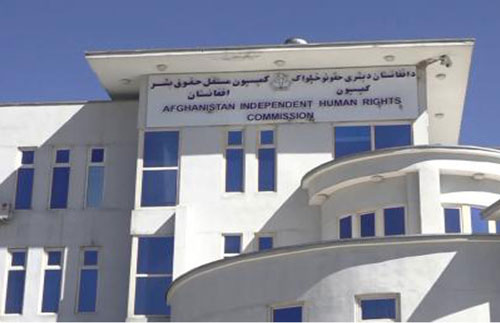Former members of the Afghanistan Independent Human Rights Commission (AIHRC) say that, except for the former head of the organization, the rest of the staff will continue their activities outside of Afghanistan.
They say the commission will continue to make efforts to appeal for Afghan human rights.
The Islamic Emirate has dissolved five governmental organizations, including the Human Rights Commission.
“Currently, the commission’s staff is working on a strategy to see how we can document the human rights situation and the human rights abuses against the Afghan people,” said Benafsha Yaqoubi, the AIHRC commissioner.
“The international legitimacy of national human rights institutions stems from the Paris Principles, and the Human Rights Commission continues to operate under these principles, and based on that, we have international legitimacy,” said Shabnam Salehi, a commissioner of the AIHRC.
But the caretaker government said that in the current situation there is no need for such an institution and that these institutions have been dissolved.
“The Islamic Emirate is very careful about addressing of rights of the Afghan people and it is working based on Islamic principles, so we in the country are not worried about human rights issues,” said Bilal Karimi, deputy spokesman for the Islamic Emirate.
“Continuing the work of the Afghanistan Independent Human Rights Commission and the activities of civil society organizations defending human rights in Afghanistan is a serious and urgent need,” said Abdul Ahad Farzam, former deputy minister of state for Human Rights.
“The establishment of the Afghanistan Independent Human Rights Commission in exile is a very good step and we hope that this commission will be able to monitor the human rights situation inside Afghanistan in a comprehensive manner,” Aziz Rafiee, former head of the Afghan Civil Society Complex, told TOLOnews.—Tolonews










